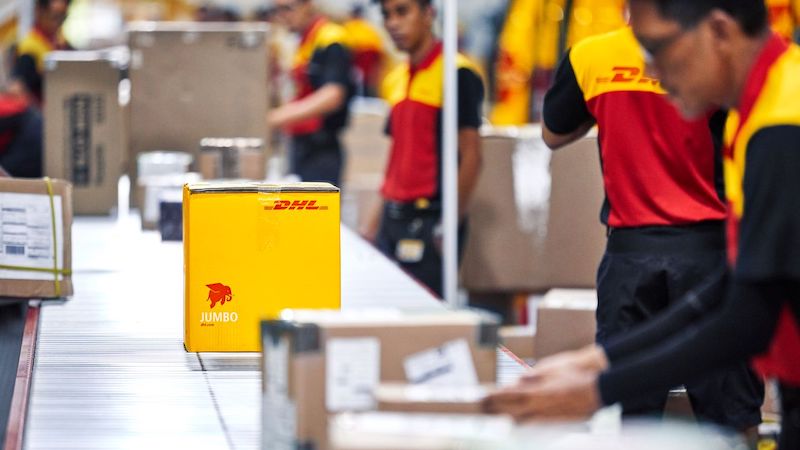Grow your business with the Discover newsletter
Logistics advice & insights straight to your inbox
Subscribe now
The United Arab Emirates (UAE) is one of the world's key trading partners. Strategically located at the crossroads of Europe, Africa and Asia, the UAE allows convenient access to both developed and emerging markets in these countries as well as that of the Middle East. Notably, the UAE shares close trade links with India and is the nation’s third-largest trade partner.
Based on statistics collated by the Observatory of Economic Complexity (OEC), trade volumes have been increasing by 10.7% year on year since 1995. This is further propelled by the emergence of Dubai as a key regional trading hub, which boasts no trade restrictions and minimal import duties. As a bonus, the UAE has a high demand for diverse imports from India, ranging from refined petroleum to jewellery. In 2022 alone, the total non-oil bilateral trade amounts to US$72.87 billion, reported India’s Department of Commerce. Thus, the UAE offers plenty of lucrative opportunities for companies looking to export goods from India to Dubai or establish a presence in this important market.
However, as with any country, the UAE has its set of import, export and customs procedures as well as trade regulations that companies from India should familiarise themselves with before exporting their goods to the UAE, specifically Dubai. Failure to comply with these requirements can result in significant penalties, delays in customs clearance and possible seizure of goods. By taking time to understand the laws, policies and restrictions, companies can avoid potential pitfalls and ensure a smooth, successful transaction. Read on to learn more about the essential regulations that businesses should note.
Based on the terms of the UAE-India CEPA, the UAE’s customs duty on a significant number of Indian goods will be reduced or eliminated immediately or progressively. The goods that will benefit include petrochemicals, oil, gas, minerals, agriculture, jewellery, textiles, gems, and metals. For example, the UAE tariff for jewellery was 5% before the CEPA. With this free trade agreement, Indian businesses can ship jewellery to the UAE tariff-free. Certain products will also have their tariffs gradually reduced over the years. Take vegetable oil for instance. The UAE tariff of 5% will be reduced by 1% each year, with businesses accessing the 0% tariff in the fifth year.
This preferential tariff enables companies across various industries to enjoy greater market access, helping them to compete more effectively in the UAE market.
In addition, the CEPA signed by UAE and India includes provisions that boost efficiency in customs procedures. One such clause is the issuance of customs rulings before import, which provides greater certainty about the import requirements and restrictions for specific items. This helps smoothen out the import process for companies in India. As Dubai’s import regulation follows the UAE, being aware of the UAE’s import restrictions will also prepare companies in India well for shipping goods to Dubai.
Other terms include adopting international customs management best practices and exchanging information to help reduce trade costs and facilitate trade by avoiding unnecessary regulations or administrative steps. Through these favourable provisions, companies can reduce the paperwork and bureaucracy involved in importing and exporting goods, achieving greater cost savings. Streamlined customs procedures also make it easier for companies to comply with customs regulations. This enables them to avoid costly delays in the flow of goods, ultimately improving customer satisfaction.
Apart from trade policies, businesses can also benefit from the multiple free trade zones in Dubai that provide favourable conditions for importers and exporters. Free trade zones are regions exempt from customs rules and laws. Thus, companies in India can defer or potentially avoid incurring duties and quotas when they export goods to these zones in Dubai to prepare for re-exportation. Moreover, no tax is imposed on items destroyed in free trade zones. This helps companies with fragile imports or business operations that generate a lot of waste to achieve more significant cost savings and avoid lengthy customs duty drawback procedures.

While Dubai’s customs rules have been simplified to facilitate companies with trade procedures, the preparation of shipping documents and planning are also essential stages in the overall process. Various documents such as those listed below are often required for imports:
However, this list is non-exhaustive and specific goods may require additional documentation. Finding out the detailed requirements can be a tedious process for companies, especially when this information needs to be drawn separately from various websites. In such instances, engaging a professional logistics company like DHL Express will help companies navigate the paperwork for a smooth and seamless import and export experience.
As a leading logistics company in the industry, DHL Express can draw on its wealth of experience to help companies prepare parcels and manage customs clearance. This helps companies in India avoid delays and costly mistakes. With an extensive network, companies can be assured that their parcels can be delivered quickly and in good condition, enabling them to deliver value to their own customers. Through DHL Express’ real-time tracking system, companies can also easily receive timely updates on the status of their products, facilitating their own business decision-making. Register an account with DHL Express today to tap on DHL Express’ expertise and obtain end-to-end support for all your logistics needs.